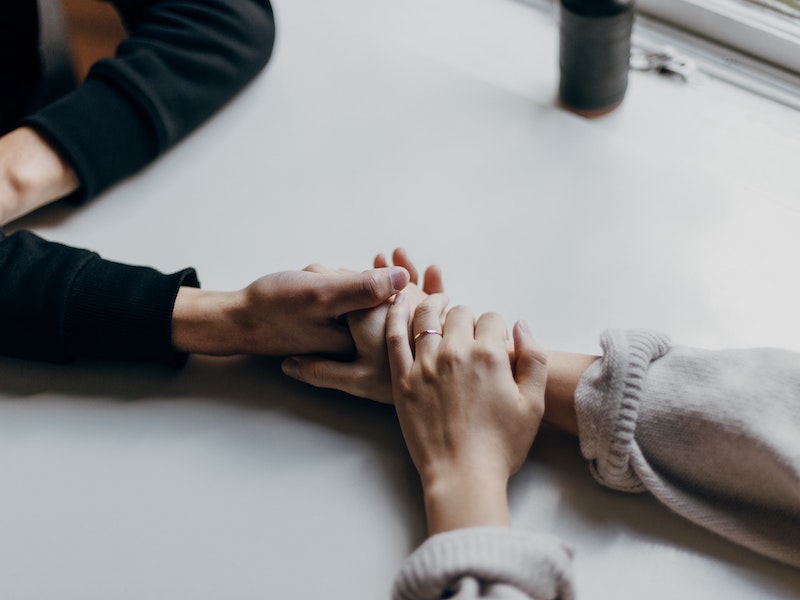What’s the secret ingredient to understanding and applying this year’s International Women’s Day theme of ‘equity’? Mindfulness Expert Ali Roff Farrar discusses how we can train ourselves to be and act more compassionately in order to embrace equity…
Three girls peer over a fence to watch a baseball match. One is tall enough to see easily over the fence. The second girl can just about see over the fence if she stands on her tiptoes, tiredly shuffling her feet to ease the discomfort. The third girl is too small to see over the fence at all, only grabbing tiny glimpses as she makes the huge effort of jumping to briefly see over the top.
You have three blocks for the girls to stand on, in order for them to see over the fence. As a means of achieving equality, you give one block to each of the girls to stand on. Seems fair, right? The first girl is now head and shoulders above the fence. The second girl can now just see over the fence to watch the game. So far, so good. But the third girl, although a little closer, still isn’t tall enough to see over the fence.
Distributing your resources equally didn’t quite give all the girls the same opportunity. But look at the situation again, and what happens when you distribute your blocks with equity? #EmbraceEquity is the International Women’s Day theme for 2023, and if you haven’t come across it before, it’s a fascinating concept. To tackle our situation with equity instead of equality, you’d take the block that the first girl doesn’t need in order to see, and give it to the third girl. All of a sudden, now all three girls can watch the game easily.
Why does equity matter?
So, what actually does equity mean and create when applied to our lives? The IWD website explains it perfectly; “Equity acknowledges that people don’t begin life in the same place, and that circumstances can make it more difficult for people to achieve the same goals. Inequity affects many people, but most commonly historically it has marginalized communities such as women, people of color, disabled people, the economically disadvantaged, and those from the LGBTQ+ community. The goal of equity is to change systemic and structural barriers that get in the way of people’s ability to thrive.”
The key ingredient
When we look at the values and skills we need in order to employ equity, there’s a key ingredient that I believe needs to be included in order for it to happen; compassion. Compassion is more than kindness. It is the feeling you have when you look at someone else’s suffering, understand their suffering and feel motivated to end or relieve it. Studies have examined compassion and found that it comprises of five aspects: generosity, hospitality, objectivity, sensitivity, and tolerance. What made us redistribute the blocks when it came to the girls peering over the fence? We understood the suffering that the second and third girl felt; we applied compassion to the situation.
But we also applied another kind of compassion which is required to be able to have the courage and resilience to look at the situation twice, see continued suffering, and take further action. To observe and overcome the feelings of injustice or pain we feel when we see others suffer due to inequality or inequity, requires self-compassion. Studies have found that self-compassion creates feelings of empowerment, which is an important factor in standing up for ourselves and others and inciting change. If you have been affected by inequality or discrimination, self-compassion can also help you cope with the negative impact of those situations.
So, can we cultivate more compassion? Can we train ourselves to be and act more compassionately in order to embrace equity? The answer is yes! Through practicing compassion meditations, we literally rewire and change our brains to be more compassionate through ‘cortical thickening’ and neuroplasticity. Even more interestingly, research has found that practicing these meditations changes the brain regions that allow us to be more empathetic to other people’s mental states. And many scientific studies have found that empathy and equity operate synonymously. For example, a teacher’s ability to empathize with students’ life experiences has been found to create more positive mindsets about student behaviour, greater competence in handling problem behaviours, increased use of effective problem-solving strategies, greater relationship closeness, and lower levels of job burnout.
And that’s not to mention the other amazing benefits compassion has on our mental and physical health. Studies have found that practicing compassion reduces inflammatory and behavioural responses to stress which are linked to depression and physical disease through damaging the immune system. It also lowers the heart rate, reducing for example the risk of developing cardiovascular disease (irrespective of blood pressure, insulin resistance, and cholesterol levels).
Circling back to this year’s IWD theme of equity, compassion helps us to recognize and understand that each of us has different circumstances in life. It helps us to see each other’s suffering or difficulties that may result due to these differences, and understand that we might therefore need different resources and opportunities in order for us all to reach an equal outcome. Compassion is a fantastic tool to help us see and accept the common humanity between us all, and have the patience, and understanding that someone might need more than us in order to also succeed or be happy.
When applied internally, self-compassion can also help us to understand and accept that we ourselves might need help or more resources to achieve what our peers may achieve more easily. And it can help us to be non-judgemental and tender to ourselves in those moments so that we can give ourselves what we need to be successful or happy, without applying even more suffering to our situation through feelings of guilt or un-worthiness.
 About the author
About the author
Ali Roff Farrar is a wellness writer, yoga teacher, and mindfulness expert. She is passionate about combining the western sciences of psychology, neuroscience, and coaching with the Eastern philosophies of meditation, mindfulness, and yoga, to cultivate true wellness of body and mind. Her first book ‘The Wellfulness Project (Aster, £16.99) was published in 2020.









